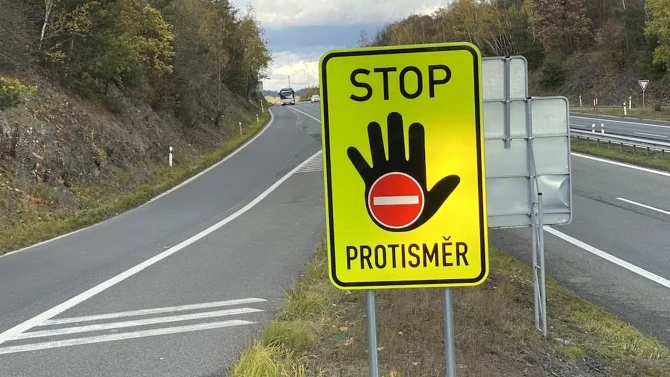By Matt Reynolds
WARSAW, Oct 2 (Reuters) - The manufacturing sector in central Europe's biggest three economies continued to expand strongly in September, sector surveys showed on Monday, although the pace of growth dipped after this year's strong first half.
The Purchasing Managers' Index (PMI) inched lower in Poland to 53.5 points and nearly 1.5 points in Hungary and the Czech Republic to 53.5 and 55.4 points.
A figure above 50 indicates expansion on the previous month and a number below 50 signals contraction.
Second quarter growth in the three economies was 3.6-6.2 percent in the second quarter, prompting hikes in interest rates in Hungary and the Czech Republic.
Analysts said, however, that the PMI data confirmed the Czech and Hungarian economies, in particular, are beginning to cool two years after accession to the European Union boosted trade and investment in the region.
"These numbers are in line with expectations," said Emilia Skrok, an economist at the World Bank in Warsaw.
"The Czech economy is probably slowing down a bit after stronger than expected growth earlier this year. Hungary is slowing down because of a fiscal contraction."
Hungary has begun a programme of tax hikes and public spending cuts in an attempt to reign in its fiscal and current account deficits. Its budget deficit is expected to reach 10.1 percent of GDP -- the highest in the European Union and more than three times the euro zone's 3 percent limit.
But the austerity measures are likely to come at the cost of a fall in economic growth, which at 3.6 percent year-on-year in the second quarter was already the region's lowest.
The Czech economy is seen growing at around 6 percent in 2006 as a whole, down from a 7.1 percent expansion in the first quarter when a strong pickup in car and other manufacturing exports propelled growth.
RATE HIKES LOOMING
Growth in the region's biggest economy, Poland, is seen holding steady at between 5.0 and 5.5 percent for the full year, driven by accelerating investment and consumer spending.
Inflation in Poland has been among the lowest in the European Union this year. But analysts from bank ABN AMRO, which sponsors the PMI survey, said its price indices showed rising inflation risks.
"Output price inflation remained relatively high, signalling a continued build-up of cost-push inflation risk," said Zsolt Papp, head of CEMA Economics at ABN AMRO.
The survey's input price indicator for Poland eased for the second month running. But at 64.4 points it still showed strong price growth. The output price index also inched down, but still stood only just off a 26-month high.
Earlier on Monday, Poland's finance ministry said consumer inflation likely inched up to 1.7-1.8 percent in September.
With price pressures mounting, most analysts expect Poland's central bank will raise its main interest rates sometime early next year, following the lead of its regional peers, which have already started tightening.
Poland's central bank kept its main rate at a record low of 4.0 percent last week, but Czech policymakers surprised analysts by hiking its base rate 25 basis points to 2.5 percent.
In Hungary, the central bank also surprised on expectations with a more aggressive 50 basis point move to a base rate of 7.75 percent. (Reporting by Matt Reynolds, Reuters Messaging: matthew.reynolds.reuters.com@reuters.net, tel. +48 22 653 9715;editing by Ian Jones))
Keywords: ECONOMY EAST PMI




 Povinnosti účastníků provozu účastníky provozu mnohdy zaskočí. Dnešní kvíz prověří, jestli své povinnosti znáte
Povinnosti účastníků provozu účastníky provozu mnohdy zaskočí. Dnešní kvíz prověří, jestli své povinnosti znáte
 „Přišel pěšky, odjel vlastním vozem“: slogan autobazarů měl charakterizovat prodeje ojetin v Československu
„Přišel pěšky, odjel vlastním vozem“: slogan autobazarů měl charakterizovat prodeje ojetin v Československu
 Je Kodiaq favorit? V ČR se hledá nejlepší auto pro rok 2025. Ve hře je i brutální elektromobil nebo klasické SUV
Je Kodiaq favorit? V ČR se hledá nejlepší auto pro rok 2025. Ve hře je i brutální elektromobil nebo klasické SUV
 Rok po faceliftu dostal elektrický bestseller z Mladé Boleslavi další facelift. Enyaq vypadá jak Elroq
Rok po faceliftu dostal elektrický bestseller z Mladé Boleslavi další facelift. Enyaq vypadá jak Elroq
 Kdo nezvládne kvíz základních dopravních značek za plný počet, ten by raději neměl řídit. Tak se ukažte
Kdo nezvládne kvíz základních dopravních značek za plný počet, ten by raději neměl řídit. Tak se ukažte
